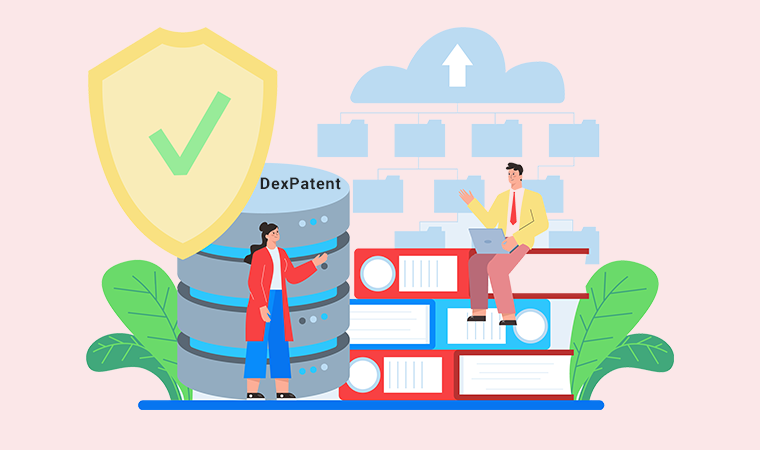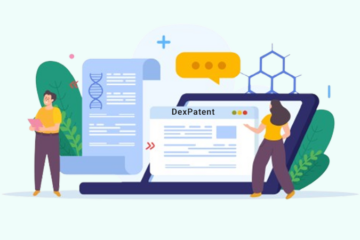7 Best Free Patent Databases Every Inventor Should Know

“The secret of getting ahead is getting started.” — Mark Twain
If you’ve ever tried looking up a patent on your own, you’ve probably experienced the overwhelmed by cryptic codes, unfamiliar terminology, and endless PDFs. But here’s the good news: a free patent search becomes much easier once you understand where to search and how each database supports your innovation journey.
In today’s global patent ecosystem, where WIPO reports over 17 million active patent publications, knowing how to navigate free databases is a critical skill for any serious inventor.
So, let’s walk through the major free patent databases, their strengths, limitations, and how to use them effectively from both a technical and legal standpoint.
Why a free patent search matters
Before choosing a database, it’s important to understand why prior art searching is essential:
- It helps you assess novelty and non-obviousness, the two core requirements under patent laws worldwide (e.g., In US – 35 U.S.C. §102/§103, in India – Section 2(1)(j) of the Indian Patents Act).
- It prevents you from unknowingly reinventing what’s already been disclosed.
- It supports Freedom to Operate (FTO) by identifying enforceable patents in your domain.
- It helps startups and small businesses avoid infringement risks and make informed R&D decisions.

Since global law follows the principle that “anything published anywhere can count as prior art,” choosing the right search tools becomes crucial.
Especially since every country has its own official patent search databases, along with other several third-party patent search engines, we have selected the 7 best (most user-friendly) options for you to explore.
- Google Patents (with Prior Art Finder): Basic, Broad & Beginner-Friendly
Google Patents is often the first-place for beginners to explore the patents in a simple, fast, and intuitive.
Coverage:
- S. patents, EPO, WIPO, China, Japan, Korea, and many more
- Integrated non-patent literature (via Google Scholar)
Strengths:
- Easy keyword-based searching
- Covers millions of international / worldwide patent families
- Ideal for initial brainstorming or terminology exploration
- Scanning related inventions and adjacent technologies
Limitations
- Does not provide reliable legal status
- Not suitable for claim interpretation or FTO
Always confirm results in official patent databases.
- Espacenet (European Patent Office): Global, Technical & Classification-Driven
Espacenet offers 130+ million patent documents from nearly 100 jurisdictions. It’s the preferred one for many professional searchers due to its classification-based search using CPC codes.
Why it matters legally
CPC codes break down technology into granular categories, e.g.:
- G06N 20/00 – Machine learning frameworks
- G06F 11/00 – Error detection and fault diagnosis
Using CPC is often more reliable than keyword searching, especially in fields with evolving terminology like AI or biotech.
Best Use
- Deep technical searching
- Understanding how an invention is classified
- Finding highly relevant prior art missed by keywords
- Detailed patent family information
- “Mosaics” view for technical breakdowns
- Easily access to PDFs
Example scenario:
A startup building a smart IV-drip monitoring system used Espacenet to search CPC classes and found an older Japanese patent with identical features. This early discovery saved months of effort and prevented an unnecessary patent filing.
- WIPO Patentscope: Global View of Early-Stage Innovations
Patentscope provides access to PCT applications, which are often the earliest disclosures of cutting-edge technologies.
Coverage
- PCT (Patent Cooperation Treaty) applications
- National phase entries for 60 national or regional Offices
- Machine-translated documents
Why it’s important
- PCT filings appear 18 months after the priority date and often reveal competitor directions long before national filings.
- Cross-lingual search for Asian/European patents
- High-tech fields like telecommunications, pharma, and semiconductors
- USPTO Patent Public Search: Legally Rigorous & U.S.-Focused
USPTO’s full-text database allows complex Boolean queries and field-specific searches.
Legal insight
Under the first-inventor-to-file system, anything publicly disclosed before your filing date can be cited against you. U.S. examiners are known for pulling obscure global prior art.
Uniqueness
- Ideal for legal, claim-level searching
- Includes examiner citations and references
- Validity checks and prosecution analysis
- Only U.S.-focused searches
Case reference: In re Hall
A single library thesis, barely accessed, was considered valid prior art, which shows how broad U.S. prior art can be.
- InPASS (Indian Patent Advanced Search System)
For India-based inventors, InPASS offers full-text access, application status, and file histories for Indian patent applications alone.
You can check if a patent is:
- Granted and in force
- Pending
- Abandoned
- Refused
Example
A Chennai med-tech company found that a competitor’s catheter application was abandoned after multiple Section 3(d) objections, which eliminated FTO concerns.

- Free Patents Online (FPO): Simple, Fast & Search-Friendly
FPO is a popular database for independent inventors and early-stage searches.
Why use it
- Clean interface
- Fast keyword searching
- Easy access to PDFs
However, it may not always reflect updated legal status, so use it only for preliminary reviews.
- Lens.org: Analytical, Cross-Domain & Research-Integrated
Lens.org is one of the most comprehensive open-access innovation platforms, combining patents and scientific literature.
Key strengths
- Patent & research paper integration
- Family visualizations
- Legal status timelines
- Analytics dashboards for landscape studies
Best Use
- R&D-heavy fields (biotech, AI-health, material science)
- Academic research and interdisciplinary innovation
- Technology landscape studies
A free patent search won’t replace a detailed attorney-led patentability or FTO analysis, but it’s a powerful starting point. These databases help you refine ideas, avoid reinvention, understand competitor trends, and approach patent professionals with confidence.

Think of free databases as your first conversation with the global innovation ecosystem, because they reveal what exists, what’s missing, and where your invention can truly stand out. And once you’re ready to dig deeper with claim charts, infringement evaluations, or validity checks, partnering with a patent professional becomes essential.
Start exploring, as your next big idea might begin with a simple search.
Happy Patent Searching… !












0 Comments